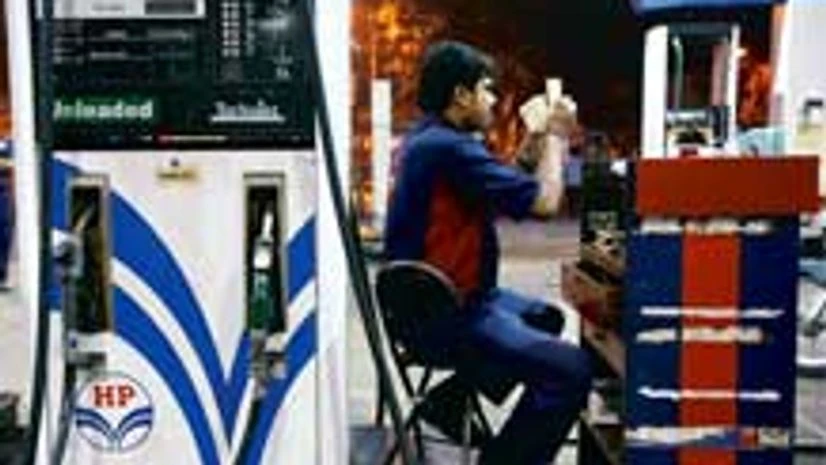The agenda prepared by the petroleum ministry for the new National Democratic Alliance (NDA) government has skipped the contentious issue of a gas price hike, but it has listed issues of freeze on direct benefits transfer and increase in the subsidised liquefied petroleum gas (LPG) cylinder as avoidable decisions of the United Progressive Alliance (UPA) regime.
In a presentation, the ministry highlighted production-sharing contracts are beset by legal disputes and should have been revised based on experiences derived from working on existing PSCs.
This comes at a time when an arbitration process is underway between Mukesh Ambani-led Reliance Industries (RIL) and the government over fines imposed by the government amounting to about $1.797 billion in 2010-11, 2011-12 and 2012-13 for production shortfall.
More From This Section
It specifies that focus needs to be there on increasing domestic oil and gas production by over 25 per cent in the next five years, with an additional refining capacity of 25 million tonne per annum (MTPA).
The ministry is also batting for setting up of a national gas grid and expeditious development on LNG regas terminals on the east coast in the NDA regime.
In the upstream, midstream and downstream sectors, the oil and gas industry is in favour of an agenda covering diesel price, reforms in cooking gas distribution, the price of natural gas, a subsidy-sharing formula and clarity on exploration and production rules.
It is expected that the annual cap on subsidised cooking gas cylinders would be brought to nine a year for each eligible household.
A key move that would decide the course of investments in the upstream segment is the increase in gas prices and a roadmap towards free pricing. The upstream industry is hopeful that the government would take a serious look at the subsidy-sharing formula.
"The UPA-II government was close to implementing this (proposing $65/bl net realisation for ONGC/Oil India). The NDA government might choose to implement this by the second quarter of FY15, after taking stock of the oil marketing companies' under-recovery trends," said ICICI Securities.
The Bharatiya Janata Party (BJP)'s manifesto promised that oil and gas exploration would be expedited to help reduce the import bill. The industry awaits clarity on E&P reforms and expects the government to stick to the Kelkar committee recommendations on continuing with the cost-recovery mechanism.
The BJP had promised a comprehensive national energy policy. This would focus, it said, on development of energy infrastructure, human resource development and upgrading of technology. The party said it considers energy efficiency and conservation crucial to energy security. It mentioned the need to maximise the potential from oil, gas, hydel power, ocean, wind, coal and nuclear sources.

)
